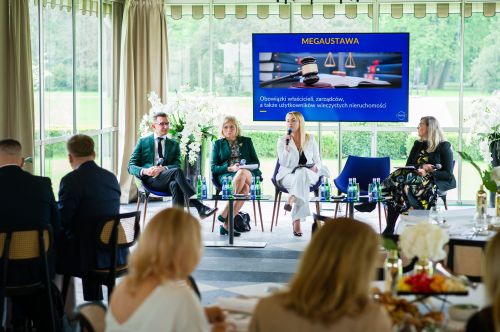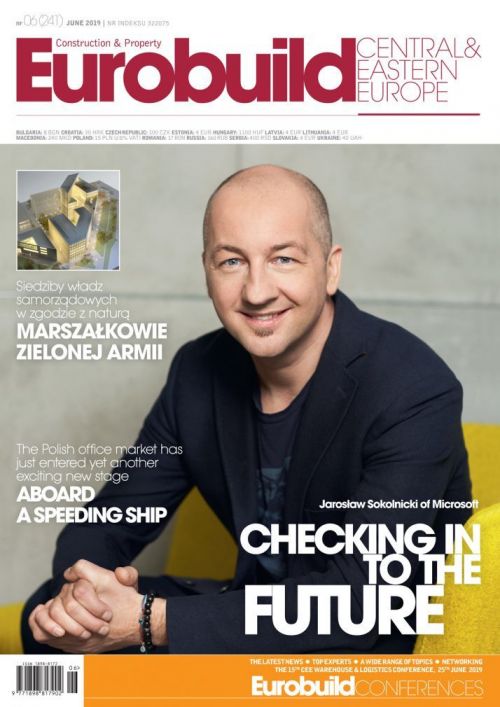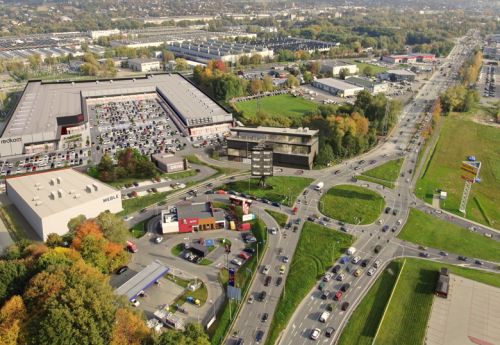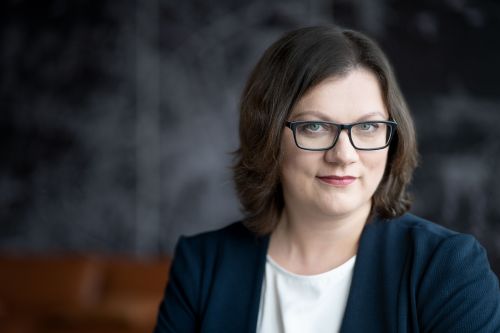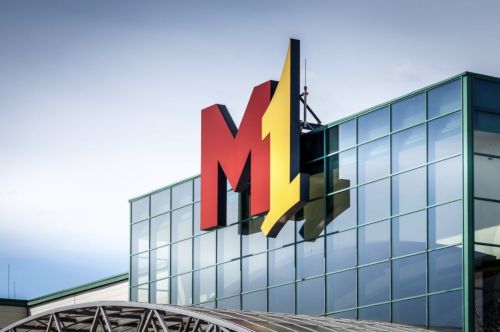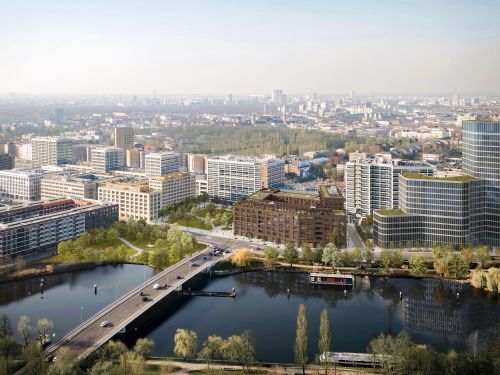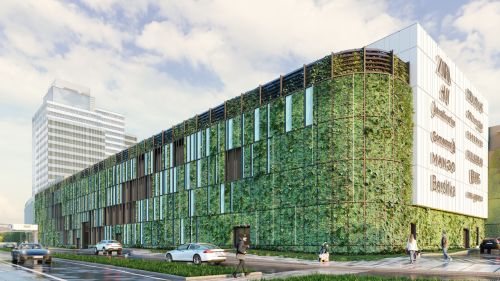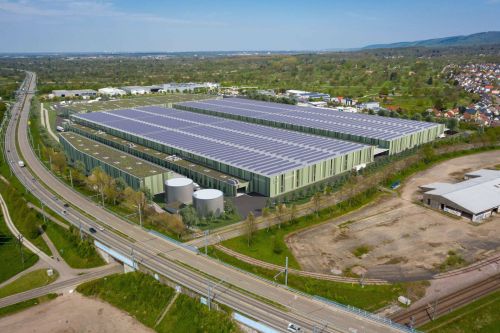Not just another day at the office
Office & mixed-use development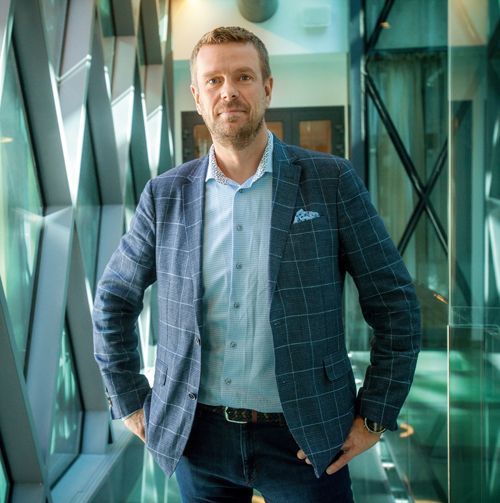
Alex Hayes, ‘Eurobuild CEE’: Could you tell me something about the origins of the company?
Klaus Koponen, regional general manager, Finland and Poland country manager, IWG: IWG’s story started in 1989 when CEO and founder Mark Dixon identified a business opportunity in Belgium after speaking to business people who needed temporary and professional workspace but couldn’t find anything suitable or affordable. He then set up Regus to meet this demand, first in Belgium and then across the world, and it grew to become the world’s leading provider of flexible workspace. Since then, the group has acquired other leading workspace companies, such as Spaces and No18, and grown its network to over 3,300 locations in 110 countries, serving over 2.5 mln customers. In 2016, IWG was created as a holding company for these different workspace providers, to ensure they could grow in their own way, while still receiving the support they needed from the global industry leader and continuing to offer unrivalled choice to their customers
I understand you now operate five brands. Why so many?
IWG’s multi-brand offering is a key differentiator from our competitors, and most importantly enables us to provide clients with greater choice. Each of our brands offers a different experience, different types of workspaces and services. We are seeing our biggest growth come from large multinational corporations and many of these use multiple IWG brands to house their employees in workspaces that best suit their specific needs. We are not all alike. People are different and want different workspaces, communities and services to help them to be productive in a way that suits them and their businesses best. For instance, some people thrive in a bustling coworking environment, whereas others prefer a more tranquil or private work setting. Some expect to have a lot of high-end amenities and others simply want a place that has good wifi and professional standard meeting rooms. This flexibility allows us to meet clients’ needs throughout all stages of their business’ development, anywhere in the world.
Why did you choose Regus and Spaces for Poland?
We came onto the market with Regus as our main brand. With its emphasis on coworking environments we felt that Spaces would very much fit into the changing working trends in Warsaw and the biggest regional cities. They’re both a little bit different: corporate modern versus an entrepreneurial community and creative environment. As for bringing other IWG brands to Poland, that will always depend on the demand we see from the market for those kinds of workspaces and whether the right types of location can be found.
How big could the flexible office market possibly get?
Flexible workspace is a booming industry. In fact, by 2020, 50 pct of all workers will be remote most of the time, with the global mobile workforce set to hit 1.87 bln people by 2022. Over this last decade the global market for flexible offices has grown at an average of 13 pct per annum, while the coworking sector itself is projected to tally an almost 24 pct compound annual growth rate between 2016 and 2020. JLL estimates that up to 30 pct of corporate real estate could be flexible workspace by 2030. At the moment it’s 2.3 pct in Poland, but in London it’s about 7 pct, whereas in Helsinki it’s only about 1 pct. So you can see the potential for growth over the coming years.
I’ve heard it said that a downturn might be good for your industry, because when people are thrown out of their jobs they then begin starting up their own small companies. Do you think a downturn could in any way be beneficial to you?
Our services are certainly attractive to entrepreneurs who are just starting out and need affordable and professional workspace where they might also meet potential clients and partners. However, we see even greater potential in the large corporates that are looking for further cost saving opportunities or to knock their real estate portfolios into better shape. Scalability is vital, both in times of growth and during tougher periods where downsizing might be necessary. Having a flexible, short-term lease enables companies to react faster in times of financial difficulty.
So you feel that the main potential for growth lies with corporates?
Yes. We see all this as a much bigger market. We are currently around 30 pct corporate and we aim to grow this side of the business by 50 pct over the next few years. Corporates have been doing quite a good job when it comes to streamlining their headquarters. They now have between 10–14 sqm per FTE [Full Time Equivalent – i.e. for a single full time worker or the temporary worker equivalent], whereas a few years ago it would have been up to 20–25 sqm. Corporates are likely to further scale back their headquarters and look for more flexibility, therefore they will again be signing framework agreements with us, so that our network can be used by those employees who are on the road or those who prefer to work at home or in coffee shops.
Surely then you are in direct competition with Starbucks?
It would be a very challenging task to grow a company from a coffee shop. Have you ever tried to have a conference call next to a noisy coffee machine? Where’s the privacy, where are the services, where are the meeting rooms? There are so many issues. Of course, you can drop in and drop out – but not on a daily basis. But on the other hand, how often do you make new business acquaintances and start chatting about your own business with them in a coffee shop? How often can you exchange creative ideas? Coworking is a very important part of our concept, but there’s also the private office space and the meeting rooms. If people were simply happy to conduct their business from coffee shops, hotel lobbies or other public spaces, then we wouldn’t have the successful workspace industry we have right now.
But there hasn’t yet been a sharp downturn to really test the concept.
Actually, we have witnessed several of them in IWG’s lifespan, as we have been on the market for 30 years across the world. When you operate in over 110 markets, you always have to expect the unexpected. Whether it’s an economic recession, political revolutions or any other unforeseen situation. Like every company we have had our challenges, but as our recent financial results and the growth in our customer base show, our business has continued to be successful.
Are you saying that one of your advantages is that you have been established for so long?
Having experience of so many ups and downs is always an advantage, as is our long track record of successfully partnering with landlords and businesses. But we would not be successful today if we had remained the same company we were 30 years ago. The fundamental business model is the same, but the world of work is changing, and we are always striving to adapt and innovate to meet the demands of customers and partners.
One developer recently told Eurobuild that it was a good plan to designate 20 pct of any new space to flexible workspace providers.
That’s interesting. Yes, you can adopt such rules of thumb, but I think it really depends on the location. Here at Spaces Marszałkowska we have 6,000 sqm, but I wouldn’t do 6,000 sqm in other areas of Warsaw. The size depends on the location and what the demand is like. Our units in Poland are between 1,000 sqm and 6,000–7,000 sqm. That’s the range here. In regional cities they are obviously a little smaller, but if you are in the city centre they will obviously be a bit bigger.
Developers generally build business parks far from city centres, but even then they are often keen to secure flexible workplace providers for these complexes. However, you would only be prepared to open up a much smaller centre than Spaces Marszałkowska in such a business park?
That’s correct, but I understand why developers are keen for flexible office space. The number one reason is that if they don’t have flexible office space they can’t tap the potential of the growing small businesses segment. The second main reason is that they can also then offer that flexibility to their other bigger tenants. Normally, if someone phones them up and says: I’ve got a business with ten people, and they turn around and say, “500 sqm, that’s the smallest we’ve got” – well, then that’s the end of the conversation. In fact, we have many centres in secondary cities and even suburban locations around the world. In the future we can imagine a world where commuting for hours into large metropolitan areas will have become rather quaint, as there could well be a Regus or a Spaces in your town.
And what are your immediate plans for the business?
This year in Poland we intend to open seven or eight centres and sign deals for another centre in Warsaw, as well as in Wrocław, Gdańsk, Kraków and Katowice. We’re also rolling out the franchising of the business globally.
Isn’t franchising risky in as much as you lose control of how your businesses are operated?
That’s always the risk in franchising for any business. It comes down to how you select your partners and what kind of agreements you sign. IWG works closely with its franchisees to ensure they have a framework to identify the right location and design, and that they are able grow their market footprint backed by world-class operational, IT and marketing support. In Poland we are just preparing for the launch of a franchising programme, but IWG has already established franchises that are operating well – in Iceland, Trinidad & Tobago, Saudi Arabia, Kazakhstan and Tajikistan. In Japan we recently signed up a partner to look after the entire country. Last year we started in the UK and we already have 50 centres run by various franchise partners that are going to open over the next two to three years. That was the test market and now we are going to roll it out in 40 countries.
When do you expect to make the first franchising deal in Poland?
If you asked my boss, he would say “yesterday” – but I’m hoping that by the end of 2019 we’ll have the first deals on the table.
Following a flexible career path
Klaus Koponen joined Regus in 2013 when he was appointed to the position of country manager for Finland. He graduated in 1996 with a master’s degree in commercial and corporate law from the University of Helsinki and started his career as a corporate lawyer at Mandatum Bank, before changing paths to become a sales director in Fujitsu in 2001. He has also held the positions of business development director for F Secure, senior managing consultant for IBM Global Business Services and senior vice president for sales and marketing for Sanako.












